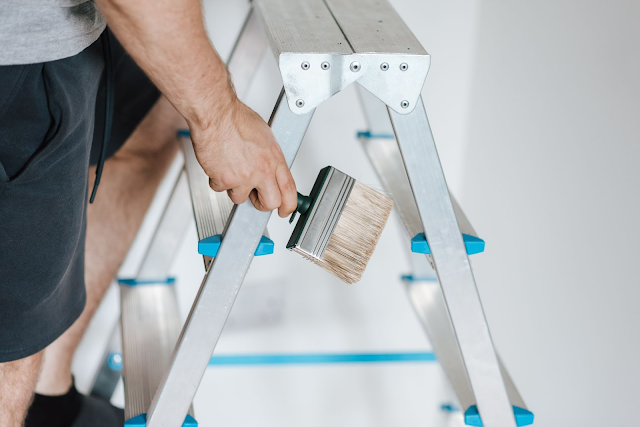Rum, with its rich history and distinct flavor, holds a special place in the hearts of many Filipinos. The traditional techniques used in rum production in the Philippines have been passed down through generations, creating a unique and beloved spirit. In this article, we will explore the fascinating history, process, and cultural significance of rum production in the Philippines.
What is the History of Rum Production in the Philippines?
The history of rum production in the Philippines can be traced back to the early days of colonization. It is said that the early Filipino settlers were already producing a crude form of alcohol made from fermented sugar cane juice, long before the arrival of the Spaniards. However, it was the Spanish colonization that truly shaped the rum production techniques we know today.
What are the Early Beginnings of Rum in the Philippines?
Before the Spanish arrived, Filipino natives were already familiar with distillation processes, using bamboo tubes and clay pots to produce distilled spirits. The introduction of sugar cane by the Spanish opened up new possibilities for the production of rum.
As the Filipino natives experimented with different techniques, they discovered that fermenting sugar cane juice produced a potent and flavorful spirit. The process involved crushing the sugar cane stalks and extracting the juice, which was then left to ferment naturally. The resulting liquid was distilled using their traditional bamboo tubes and clay pots, creating a spirit with a distinct character.
These early rum producers in the Philippines were resourceful and innovative, using what was available to them. They would often add local herbs and spices to the fermentation process, infusing the rum with unique flavors and aromas. This experimentation led to the development of various regional styles of rum, each with its own distinct characteristics.
What is the Process of Rum Production?
The process of rum production in the Philippines is a blend of tradition and innovation. It begins with the extraction of sugarcane juice, followed by natural fermentation. This fermented liquid is then distilled using traditional methods, resulting in a spirit with a unique character. Local herbs and spices are often added, contributing to the diverse regional styles of Filipino rum. To explore and savor the flavors of Filipino rum, you can conveniently buy rum online in the Philippines at thirst.com. Discover the rich heritage of this exceptional spirit.
What are Distillation Techniques in Traditional Rum Making?
Once the sugar cane juice has been fermented, it undergoes distillation to separate the alcohol from impurities. Traditional Filipino rum makers often use copper stills, which help to refine the flavors and create a smooth spirit. The distillation process requires skill and precision, as the temperature and timing must be carefully controlled to produce the desired result.
Role of Aging in Rum Production
Aging is an essential phase in rum production, profoundly impacting the spirit's flavor, aroma, and color. As rum matures in wooden barrels, it absorbs compounds from the wood, introducing notes of vanilla, caramel, and oak. This interaction, combined with the evaporation of certain alcohols and the oxidation process, transforms raw distillate into a smooth, flavorful beverage that's rich in complexity.
Impact of Tropical Climate on Rum Aging
The tropical climate, characterized by high temperatures and humidity, accelerates the aging process of rum. This unique climate allows the spirit to interact with the oak barrels, extracting flavors and creating a more complex profile. The result is a rum that exhibits distinct tropical characteristics.
What are the Unique Characteristics of Filipino Rum?
Filipino rum, like its counterparts from various regions, carries a distinct profile shaped by its local environment, traditions, and production techniques. The warm tropical climate of the Philippines accelerates the aging process, allowing for a richer interaction between the rum and the oak barrels. This results in a spirit that often exhibits pronounced notes of caramel, vanilla, and tropical fruits. Traditional production methods, such as the use of native sugarcane varieties and copper stills, further refine its flavor. Combined with the island nation's rich history and culture, Filipino rum offers a unique, smooth, and complex taste that stands out in the world of spirits.
What is the Cultural Significance of Rum in the Philippines?
Rum holds a special place in Filipino culture, not only as a beloved spirit but also as a symbol of heritage and identity. It is deeply ingrained in celebrations, festivities, and everyday life.
Rum in Filipino Celebrations and Festivities
From fiestas to weddings, rum is an integral part of Filipino celebrations. It is served during joyful occasions, symbolizing the spirit of camaraderie and hospitality. The sharing of a glass of rum brings people together, fostering a sense of community and kinship.
Rum as a Symbol of Filipino Heritage and Identity
Rum production in the Philippines is not just about the process and flavors; it is also about preserving and celebrating Filipino heritage. The craftsmanship and traditions passed down through generations reflect the resilience and ingenuity of the Filipino people. Filipino rum embodies a sense of pride and identity, showcasing the rich cultural tapestry of the country.
Conclusion
The traditional techniques of rum production in the Philippines have a long and storied history. From the early beginnings shaped by Spanish colonization to the unique flavors and cultural significance, Filipino rum remains a treasure that brings people together. The next time you savor a glass of Filipino rum, let it transport you to the tropical shores of the Philippines, where passion and tradition blend to create an exceptional spirit.

.jpg)
.jpg)
.jpg)
.jpg)
.jpg)
.jpg)


.png)

.png)

.png)

.png)

.png)



.png)






